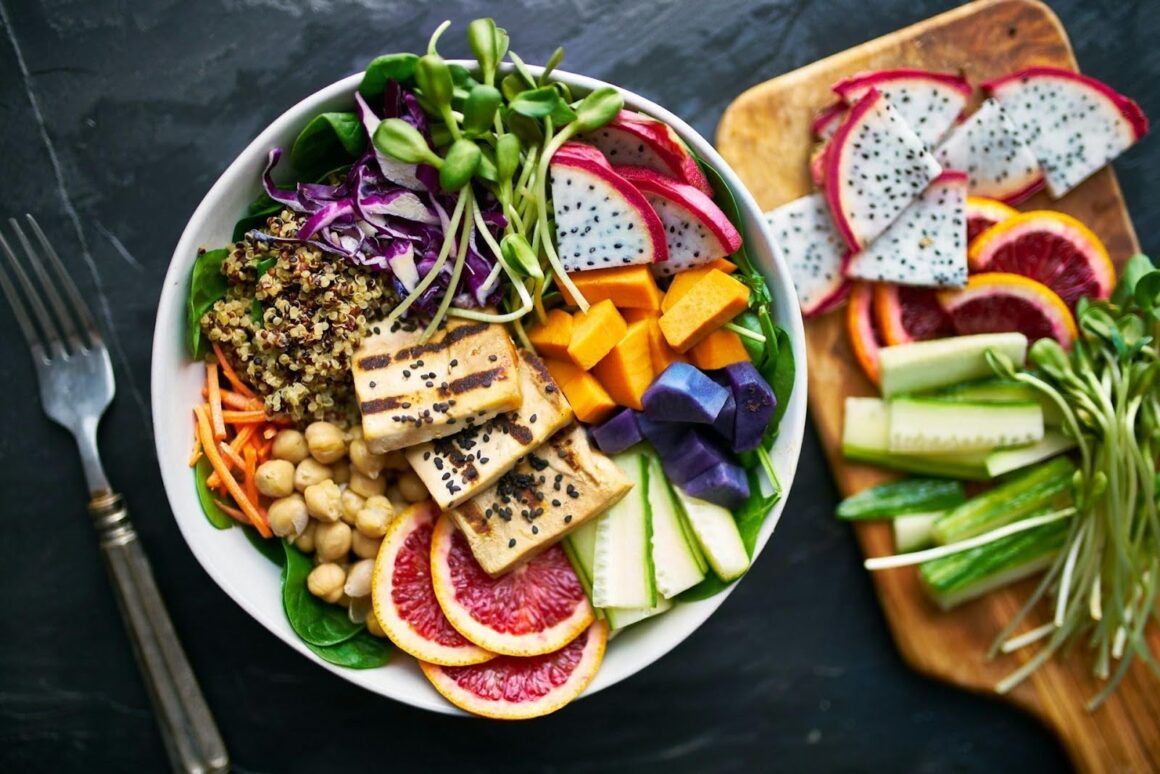
Getting that wanted muscle mass is a huge project to take on. You can lift the biggest weights in the gym, but if your diet isn’t solid, none of that matters. It’s especially important in the so-called “bulking” phase, where it’s especially important to get the right balance of proteins, carbs, and fats. To add to that, timing it all perfectly will show the gains you’ve been working so hard for.
What Is the Bulking Phase?
In simple terms, bulking means that you have to eat more than your body burns every day to have the excess energy to build muscle. It can take up to 4-6 months, but it differs for each individual.
The tricky part is balance – you want enough calories to grow, but not so many that you put on unnecessary fat. That’s why having a structured plan makes all the difference.
How to Set Your Calories
The first step is to determine your Total Daily Energy Expenditure (TDEE), or the number of calories you really burn in a day. This encompasses your fundamental metabolism as well as all of your daily activities and physical exercise.
You should consume 300–500 extra calories when bulking. Most people find it to be a sweet spot where they can grow without significantly increasing their waist size.
For instance, a 180-pound man who engages in moderate exercise may burn about 2,800 calories each day. He should aim for 3,100 to 3,300 while bulking. Every week, check your weight and body composition, and make any necessary adjustments.
Protein: Muscle’s Building Blocks
Protein is what your muscles are literally made of. Without enough of it, you’ll just struggle to recover and grow.
- How much: Around 0.8–1.2 grams per pound of bodyweight per day. So if you’re 180 lbs, you’ll want 144–216 grams daily.
- Best sources: Chicken, lean beef, turkey, fish (salmon, tuna, cod), eggs, Greek yogurt, cottage cheese, milk. Plant-based eaters can rely on quinoa, soy, beans, and seeds, but mix and match to cover all amino acids.
- Timing: Spread protein across 4–5 meals. Post-workout, aim for 25–40 grams within two hours to kickstart recovery.
Carbohydrates (Carbs): Fuel for Intense Training
Carbs are your main energy source, especially for heavy lifting. They refill glycogen stores, keep workouts strong, and stop your body from breaking down muscle for energy.
- How much: 2–3 grams per pound of bodyweight. For 180 lbs, that’s 360–540 grams daily.
- Best sources: Focus on complex carbs like oats, rice, potatoes, quinoa, and whole grains. Save simple carbs (fruit, honey, rice cakes) for around workouts—before for quick energy, after for glycogen replenishment.
- Timing: Eat a carb-heavy meal 2–3 hours pre-workout, then include carbs in your post-workout meal.

Fats: Hormone Support
Fats often get overlooked, but they’re vital for hormones like testosterone, which directly affect muscle growth.
- How much: About 0.3–0.4 grams per pound of bodyweight (25–30% of calories). For 180 lbs, that’s 54–72 grams daily.
- Best sources:
- Healthy fats: olive oil, avocado, nuts, seeds.
- Omega-3s: salmon, flaxseed, walnuts.
- Moderate saturated fats: egg yolks, grass-fed butter, coconut oil.
Micronutrients & Water
Don’t ignore vitamins, minerals, and hydration – they play a big role in recovery and performance.
- Focus on leafy greens, colorful veggies, and fruit for antioxidants.
- Key nutrients: vitamin D, zinc, magnesium, and B-vitamins.
- Hydration: Shoot for at least a gallon of water daily (more if you’re training hard).
Supplements to Consider
Food comes first, but a few supplements can give you an edge:
- Creatine monohydrate: 3–5 g daily for strength and muscle fullness.
- Whey protein: Convenient for hitting protein targets, especially post-workout.
- Advanced options: For those looking to maximize their bulking potential, bulking stacks of sarms provide advanced options that work hand in hand with proper nutrition and training protocols.
Sample Daily Meal Plan
Here’s a practical example for a 180-pound individual targeting 3,200 calories:
Breakfast: 3 whole eggs + 2 egg whites with 1 cup oatmeal and 1 banana (520 calories, 28g protein, 65g carbs, 15g fat)
Mid-Morning: Protein smoothie with 1 scoop whey protein, 1 cup milk, 1 tbsp almond butter, and 1/2 cup berries (380 calories, 32g protein, 25g carbs, 16g fat)
Lunch: 6oz chicken breast with 1.5 cups brown rice and mixed vegetables sautéed in olive oil (650 calories, 45g protein, 70g carbs, 14g fat)
Pre-Workout: 1 large apple with 2 tbsp peanut butter (320 calories, 8g protein, 35g carbs, 16g fat)
Post-Workout: 1 scoop whey protein with 1 cup white rice and honey (450 calories, 30g protein, 80g carbs, 2g fat)
Dinner: 6oz salmon with 8oz sweet potato and asparagus (520 calories, 40g protein, 45g carbs, 18g fat)
Evening: 1 cup Greek yogurt with nuts and berries (360 calories, 20g protein, 25g carbs, 18g fat)
Total: 3,200 calories, 203g protein (25%), 345g carbohydrates (43%), 99g fat (28%)
Tracking Progress
Weigh yourself weekly and take photos/measurements. A good pace is 0.5–1 lb gained per week. Faster than that usually means too much fat gain. If you’re stuck for a few weeks, bump calories by 100–200. If you’re gaining too quickly, pull back a little.
Common Bulking Mistakes to Avoid
Avoid the pitfalls of “dirty bulking” by consuming too many processed meals. Food quality is still important for health and body composition, even though you need a surplus of calories.
During the bulking phases, don’t completely disregard cardio. While maintaining conditioning, moderate cardiovascular activity can assist in reducing fat growth and promote heart health.
Don’t overlook your intake of fibre. To promote nutritional absorption and digestive health, aim for 25–35 grams per day from fruits, vegetables, and whole grains..
Final Thoughts
Eating wisely is more important when bulking than simply eating a lot. Eat only whole foods, balance your macronutrients, and properly fuel your exercises. Be consistent, have patience, and make adjustments as you go. If you take the proper strategy, you may gain quality muscle without gaining extra body fat.










